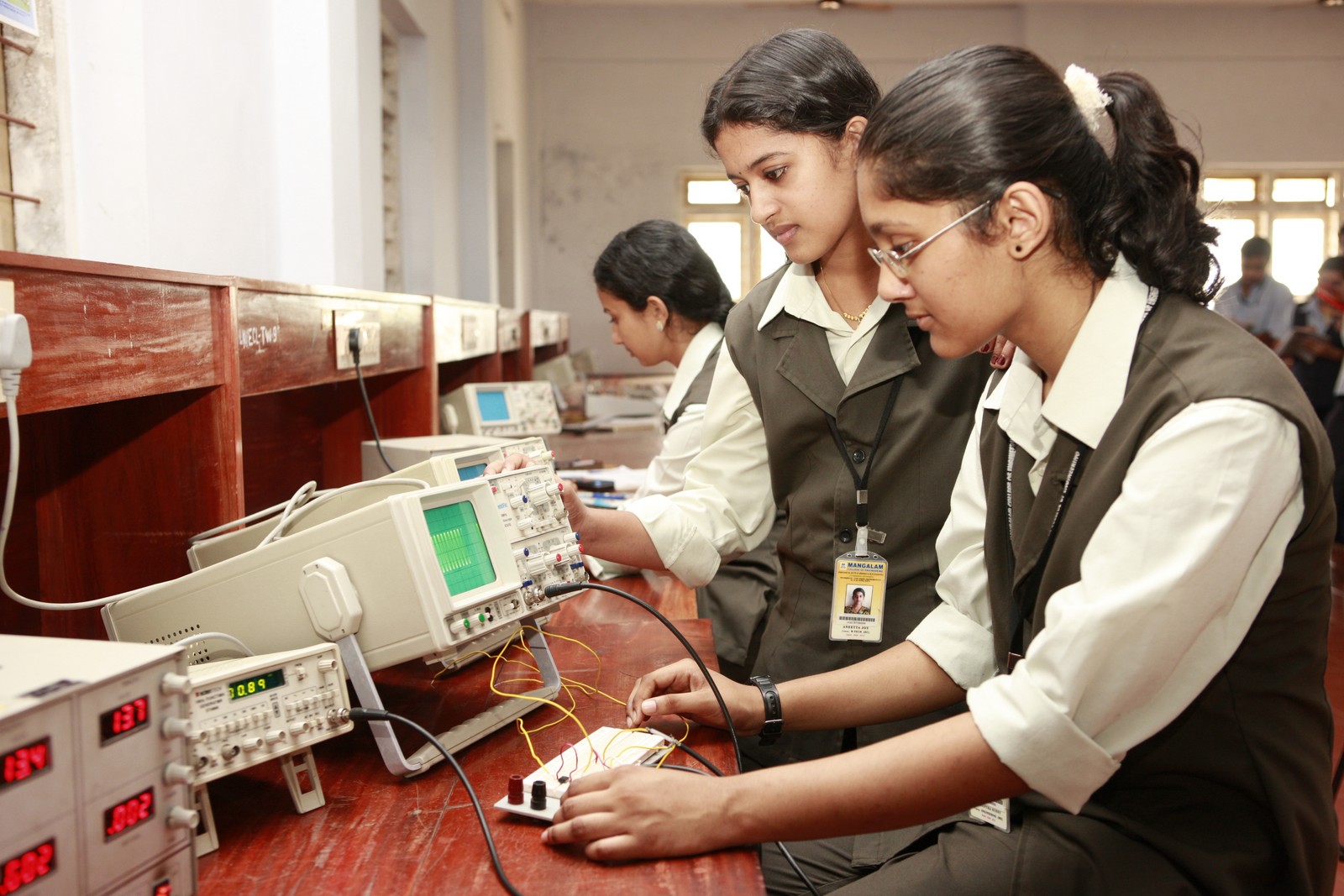The first Engineering Institution to be started in the country was the Survey School, which was established in 1794 at Madras by the East India Company. Out of this, the reputed College of Engineering Guindy, Chennai has come into existence. The output of the Engineering Institutions in the country was not commensurate with the demand in the then developing India and the Industrialization all over India necessitated the expansion of the Technical Institutions at all levels during the Five Year Plans.
Initially the Engineering and Polytechnic Colleges were under the control of the Directorate of public Instruction and Directorate of Industries and Commerce respectively. The Director of Industries looked after the Polytechnics and the Industrial schools under the overall control of Department of Labor, Employment and Co-operation. The Director of Public Instruction looked after the College of Engineering, Guindy and other engineering Colleges.here was a Technological Diploma Examination Board to conduct the Examinations and award Diplomas on the completion of Polytechnic courses. There was no machinery responsible for the coordinated development of Technical Education in its different branches and at different levels. As a result the Directorate of Technical Education was established with the objective of bringing about coordinated development of Technical Education in the State with effect from 14th October 1957 consequent to the suggestion made by the State Standing advisory Board of Technical Education.
VISION
A net work of high quality and self driven Institutions producing Technical manpower who are highly competent, dynamic, entrepreneurial and having the sufficient number and character to set this State and Country on the road to prosperity.
MISSION
- Improving the quality of Staff and Infrastructure in Government, Government Aided and Self-financing Institutions.
- Improving the quality of Education through better content and better Educational tools.
- Improving the evaluation system so as to create healthy competition among the Institutions and the Students towards Excellence.
- Networking the Institutions so as to overcome critical gaps in Resources, if any and to ensure a cooperative, win-win situation.
- Promoting Research and Development in institutions so as to inculcate entrepreneurial culture.
- Encourage the consultancy and promoting Industry Institute linkage.
SETTING UP OF THE BOARD OF TECHNICAL EDUCATION & TRAINING
It was against this background a Board of Technical Education and Training was set up with the mandate to advise the Government on the general program as well as specific individual schemes necessary for bringing about coordinated development of Technical Education in the state. It was also entrusted with the following tasks:
- Affiliation and recognition of Institutions conducting courses other than University courses and prescription of such courses of study
- Arrangements for ensuring standards in such Institutions and for verifying them through periodical inspections
- Framing regulations and conducting Examinations and award of Diplomas and Certificates, conforming to the minimum standards prescribed by AICTE
- Maintaining cooperative relationship with the Education Institutions and the Industrial establishments
SUBSEQUENT DEVELOPMENTS
- Later, the Government ordered the transfer of the control of Government Technical Examination held by the Directorate of Public Institutions to the State Board of Technical Education and Training
- In 1984 vide G.O.429 dated 17.4.84 the Government permitted establishment of new Self-Financing Engineering Colleges and Polytechnics by Private sector under the overall control of the Directorate of Technical Education.
- In 1987, AICTE Act was passed with the objective of maintaining minimum standards of Technical Education. Taking note of the phenomenon of a large number of Engineering Colleges and Polytechnics coming up in complete disregard of the AICTE guidelines, statutory powers were granted to AICTE by this Act to ensure planned development of the Technical Education, promotion of quality and regulation of the system and proper maintenance of norms and standards.
- In 1994, Continuing Education Schemes were started in the name of Canada India Institutional Co-operation Project (CIICP) under the auspices of Directorate of Technical Education.
- Technical Education Quality Improvement Programme (TEQIP) of Government of India aims to improve the quality of Technical Education in Engineering Institutions across the country. The Project agreement with world bank was signed on February 04, 2003 for First cycle of First phase and on April 12, 2004 for second cycle of First phase.
Tamil Nadu
DIRECTORATE OF TECHNICAL EDUCATION (DoTE),
53, SARDAR PATEL ROAD,
GUINDY,
CHENNAI – 600 025.
Contact No : 044 – 22350525,22351018, 22350618,22351423,22351015,22350520
| DESIGNATION | E-MAIL ID | EXTENSION | LANDLINE |
| Director | [email protected] | 112 | 22352299 |
| Additional Director (Poly) | [email protected] | 22352008 | |
| Additional Director (Exam) | [email protected] | 222 | 22351018 Tele Fax: 22351840 |
| Dy Director (Admin) | [email protected] | ||
| Assistant Director (Admin) | [email protected] | 240 | |
| Assistant Director (Planning) | [email protected] | 349 | |
| Assistant Director (Exam) | [email protected] | ||
| Liaison Officer | 226 | ||
| Special Officer | [email protected] | 346 | |
| FA & CAO | 210 | 22301517 | |
| Regional Officer II | [email protected] | 356 | |
| Regional Officer III | [email protected] | 251,253 | |
| Regional Officer IV | [email protected] | 252 | |
| Technical Assistant (Elec) | 345 | ||
| Technical Assistant (Eval-I) | [email protected] | 102,103 | |
| Technical Assistant (Mech) | [email protected] | 336 | |
| Technical Assistant (Eval-II) | [email protected] | 113 | |
| Technical Assistant (Complaints) | [email protected] | 223 | |
| PA to DTE | [email protected] | 114 | |
| NSS | [email protected] | 340 | 22300107 |
| CIICP | 363 | 22354672 | |
| TEQIP | [email protected] | 111,130,207 | 044-22351018 Extn:111 |
| Law Officer | 250 | 22351340 | |
| PC to DTE | 112 |
